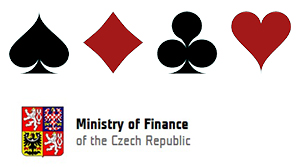
The Czech Ministry of Finance has recently revealed the 2017 figures for the gaming market in this country.
According to available data, this industry sector has generated a minimal revenue gain, which comes as a big surprise since the online gambling revenue rose by over 50%.
Numbers Are up, Though Not Much
The released report said the total revenues in 2017 were $1.77 billion, which represented an increase of 1.1% when compared to the previous year. The overall spending on gambling rose by 14.1% on the annual basis.
The online gaming recorded a significant rise in revenue, but this was not the case with the overall gains for the Czech Republic.
The country has been modifying its online gambling legislation since 2016, trying to update the regulations in order to be in accordance with the modern gaming market.
Namely, the total online gaming revenue increased by a staggering 56% on yearly basis and reached $370 million, and accounted for more than one-fifth of the overall gaming market in the Czech Republic.
Fix-Odds Sports Betting Leading the Way
When it comes to the contribution of the verticals, its relied mostly on fixed-odds sports betting, which generated $45.3 million more when compared to 2016, and finally reached $280.6 million in 2017.
The online casinos have contributed $90.5 million to the Czech market, while live casino has generated $5.4 million.
Online lotteries took home $12.5 million, but, on the other hand, land-based lotteries recorded a drop of $22.6 million.
Many believe this minimal gain in the sector is caused by the changes made to the Czech market structure that have been in effect since January 1, 2017.
The regulation update has increased the taxes on foreign licensees, which made many operators withdraw from the market. New individual vertical taxes are 23% on sports betting, 35% on slots, and 19% on the corporate tax.
The new law has also brought new limitations to the online bonus offers.
According to the Czech government, these steps had to be taken in order to fight illegal operators, and the government's plans were to purge up to 90% of such operators.
Perhaps the results will make the authorities revise their decision, and ease the current restrictions on foreign operators.
















